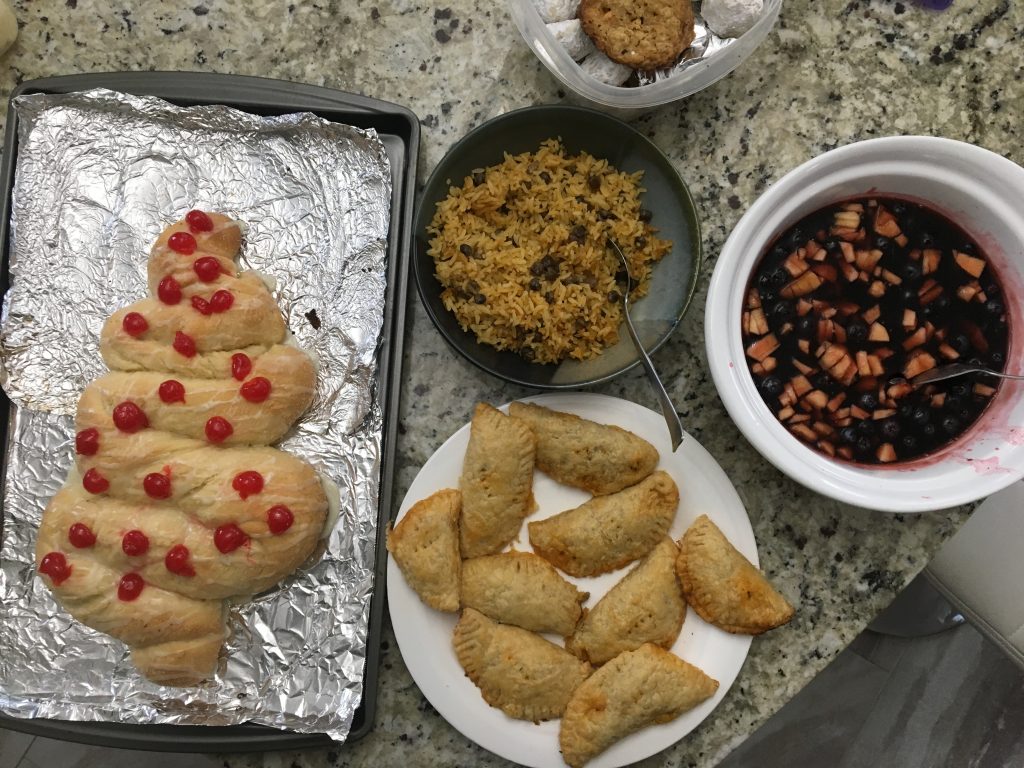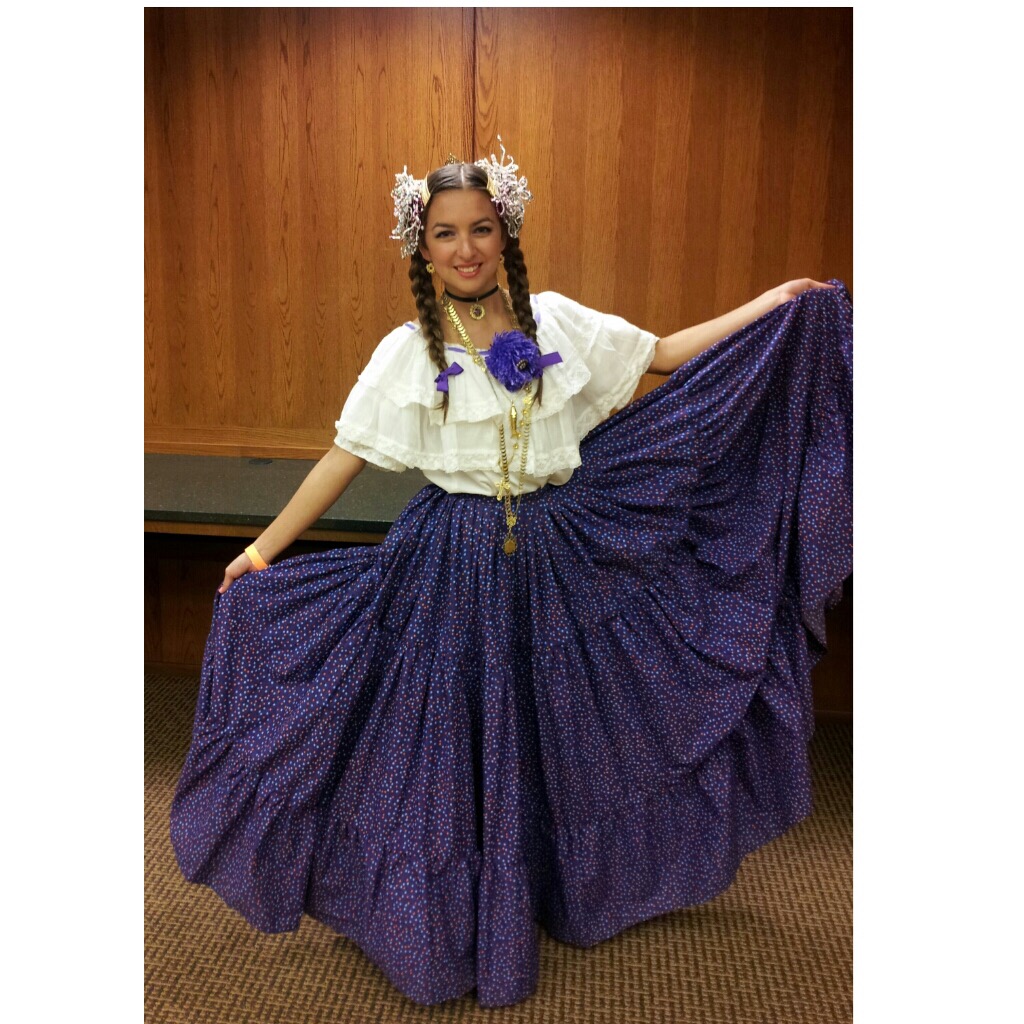This year I began college at the University of Missouri. Coming from a small farm town to Kansas City, Missouri, was a dramatic change. I wanted to get the most I could out of this new chapter of my life, so I joined groups that sparked my interest. I joined a women’s Christian sorority on campus called Gamma Alpha Lambda, and there I met Juliana Chi.
I had known Juliana for only a short period of time before I had the chance to sit down with her to enjoy a much deeper conversation. She is genuinely one of the kindest people I have ever met. In addition, she is incredibly open to letting me share her story with my current class that is focusing on diversity. We also managed to dive deeper during our conversation on how America as a society is settling for cultural ignorance, and how others may share these same experiences in a predominantly white American culture today.
Juliana’s mother immigrated to the United States about thirty years ago. Juliana is the only one of her siblings to be born and raised in Kansas City. Juliana’s family places its strongest ties with Panamanian culture; however, her grandfather is Chinese. Juliana went back to Panama with her family to finish her junior and senior year of high school. Once she graduated she was admitted to the University of Missouri as a French major. I asked Juliana to tell me things she has experienced in her life that have impacted her in regards to culture.

Juliana had an overall enjoyable childhood. Her first memory of ever feeling like something set her apart from others in her community was when she displayed a Folkloric Panamanian traditional dance at her school talent show with her father around kindergarten or first grade. “I just felt like people or kids would think it was weird and so I just remember feeling so embarrassed about it,” she recalled (2:08). It was a dance her mother found joy in as well as herself, but while performing it in front of a majority of people that did not have her same background of knowledge or culture, she felt like an outsider. Her teachers praised her, however, she still felt insecure about the inner conflicts she kept inside.

Juliana’s friends and peers did not always understand why she did things differently from them. People were not intentionally making comments that made her feel separated from the crowd, but rather the cultural divide of understanding between her and her American friends. These differences often became apparent when Juliana would bring lunches to school, have friends over, or have exceptionally different rules to follow set by her parents. “I definitely had experiences like at school where I would bring food from home, and kids would be confused, it wasn’t the traditional Wonder Bread sandwich,” (6:19). Juliana explained how her mother was an amazing cook who made sure everyone ate home-cooked foods that often originated from Panama. Peers at Juliana’s school were befuddled when Juliana brought dishes like seafood soup or rice and beans to school (6:43). Understandably, it made Juliana feel out of place.
As Juliana faced these inner self-conflicts, she did her best to make herself “Latina enough” or “American enough” depending on who she was around. For example, she would do her best to not mention things that were related to her Latin culture around her American friends, and vice versa with her Latina friends. If her friends came over she would be nervous when her mother slipped up on her English or if she made a Panamanian dish that her friends thought was weird. Juliana explained that even though it was a challenge, she found friendships in high school with people who could relate to her. Even though they didn’t share her exact same cultural background, they knew what it was like to have so many different roots. “There’s a beauty to that kind of relationship,” (8:35).

Juliana then made a point that our society should focus on today, just because you don’t grow up somewhere, doesn’t mean that’s not where you find your identity. Wherever you feel most comfortable, that’s where you should be able to say you are from without any backlash. I stated before that my class focuses on diversity, but we are also deeply centered on the history of the Holocaust. One of our assignments was to watch the film Jud Suss, directed by Viet Harlan, a film used as Nazi propaganda against the Jews. In a portion towards the beginning of the film, the Jewish antagonist, Joseph Oppenheimer, tells a beautiful young German woman, “I do not have a home, the world is my home,” (Jud Suss, Veit Harlan, 1940, 14:10-14:22). This was a stereotype emphasized by the phrase “wandering Jew” that Nazi Germany used to tell others that the Jews do not have a home because they do not belong anywhere. However, having one place that you call home does not encompass your entire identity, wherever you feel at home and what feels right in relation to who you are is all that matters.

Juliana explained that for the most part, she has not had many outstanding circumstances of discrimination or feeling as though people were against her for who she is. However, she had one incident she will always remember. She was working for a shoe store in Kansas City and had just put her two weeks notice in. The store had just received a new manager, and that day he was showing around a new employee. Everything was fine until he decided to introduce the two, “Her name is Juliana or WHO-liana? Whatever, however you say it in Panamanian,” her boss explained. Juliana replied, “It’s actually Spanish but okay,” (19:44). The manager then told the new employee Juliana was leaving them by saying, “Yeah her visa’s ending,” (20:34). Juliana found his comment hurtful and she was overall taken aback. When she said she was actually born in America, he acted surprised. This kind of ignorance is exactly what needs to be exterminated in American society today. Juliana stated that he wasn’t trying to be hurtful, he was just trying to make a joke but it came out offensive unintentionally. However, anything that is mocking a person’s identity is nothing to poke fun at. I personally understood what it was like for people to make fun of something that takes up such a large portion of your identity as I was often made fun of in grade school for being Native American. Behind every joke is a little bit of truth or at least what that person thinks, therefore legitimizing the lie.
I sympathized with Juliana for having to go through that situation. It’s not something that anyone should have to fall victim to, however it happens every day at schools, workplaces, etc. I asked what Juliana thinks needs to change in American society today, she said, “Have a much more integrated holistic educational system that includes other languages and learning about other cultures, rather than just a very narrow minded perspective,” (25:08). This very statement made me reflect on my educational system I grew up in. Every time we went over American history, teachers had a noticeable lack of concern for the Native American portion and it did not settle well with me. I took a history class during my first semester at the University of Missouri and learned many things I had no idea about. Why does American culture “sugar coat” history? If everything was up front from the start, as well as diving into the significance of all cultures, wouldn’t we have a much more open and tolerant society as a whole?

Juliana explained that this seems to be the current American ideology: “Well if we implement our belief systems, into these completely different cultures, it’ll work for them and they’ll have a much better life,” (28:24). When one thinks about that point of view, it is undeniable how willfully disrespectful and ignorant so many people can truly be. It’s hard growing up being prideful of your own country and who you are to discover that there are in fact many things that need to change. It is good to be prideful of where you are from and we have reason to take pride in being American, but that doesn’t mean that we need to whitewash everyone who comes in.
American society as a whole has come a long way, but why not strive to be the best country for anyone who moves here? Why not strive to teach our children about the wonderfully diverse cultures and people that live right here in our own neighborhoods? Why not have school systems that focus on truth rather than semi-fiction? Why settle? America can do it, but it starts with every individual and their choices on how to treat others. It starts with you.

Being in a capacity where you are a minority can be difficult; especially when the majority is not accepting of your cultural differences. This mentality of one kind of culture being wholely better than another can be extremely dangerous if it reaches a point of radicalization. In “Why Settle” by Rachel Crazybear, Crazybear discusses the difficulties that one experiences when they are placed in these kinds of circumstances. Rachel writes about Juliana, a Panamanian-American who felt like an outsider growing up which came from the growing rift she felt between her and her peers because of her cultural differences. Rachel writes, “Peers at Juliana’s school were befuddled when Juliana brought dishes like seafood soup or rice and beans to school (6:43). Understandably, it made Juliana feel out of place.” As I was reading about Juliana’s experiences, it reminded me of how dangerous these small actions can become when they are pushed to the extreme. Though it is very difficult to compare something as humanely terrible as the Holocaust to something like being made fun of because you bring a different kind of lunch to school, it is the same kind of mentality that can become extremely dangerous when radicalized. Crazybear continues to talk about how Juliana tried to change herself to be able to fit in better with her peers; “As Juliana faced these inner self-conflicts, she did her best to make herself “Latina enough” or “American enough” depending on who she was around.” To compare, during the period of Jews being ousted of society, some of them tried to act “German enough” so that they could slowly be accepted back into society. The matter of citizenship and belongingness to a country or society should not be solely attributed solely to wherever you are born or grew up or your cultural background. As Crazybear states, “…just because you don’t grow up somewhere, doesn’t mean that’s not where you find your identity. Wherever you feel most comfortable, that’s where you should be able to say you are from without any backlash.” Someone reading this might feel that this radicalization of an intolerant mentality could never result in another tragic event like the Holocaust; however, it is important to note that even though there will hopefully never be another event as tragic as the Holocaust, it is still imperative that our society continues to progress and become more accepting of people of different backgrounds as a more unified nation is much better than a divided nation in every way that a nation can be good.